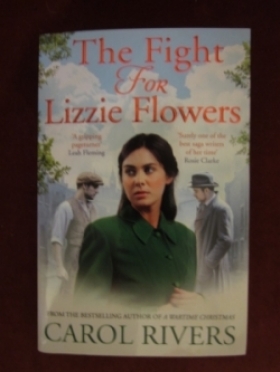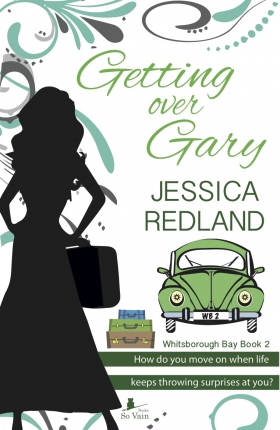In recent weeks I have been delighted to welcome several authors to my blog to talk about writing sequels. It started with saga author Carol Rivers, who shared some insights into the writing of The Fight For Lizzie Flowers, which follows on from Lizzie of Langley Street.
Then Jacqueline Farrell, author of the Sophronia books published by The Wild Rose Press, shared her experience of writing a trilogy; and last week, Jessica Redland was here talking about her Steven - Gary - David contemporary romance trilogy for So Vain Books.
And I am pleased to tell you that soon Merryn Allingham will be here to discuss her Daisy trilogy, The Girl From Cobb Street, The Nurse's War and Daisy's Long Road Home.
So what is the magic of the sequel?
Does it lie in catching up with the main character and finding out what happens next to her/him? Or perhaps in being able to move on quickly from one book to the next?
They seemed like pretty good reasons... until I applied them to two excellent sequels, both of which I loved - THE FIGHT FOR LIZZIE FLOWERS by Carol Rivers, which is the book that sparked off my blog-quest to interview every living writer of a sequel (all right, that may be an exaggeration); and the recently-published GETTING OVER GARY by Jessica Redland.
|
In The Fight For Lizzie Flowers, do you catch up with the main character and see what happens to her next? Oh boy - yes! That amazing first chapter about the wedding is a terrific piece of drama that provides a wonderful opening and immediately establishes the book as a powerful stand-alone read as well as being Lizzie's continuing story.
All the other characters are there as well. Even Babs, who is off-stage throughout, is mentioned and remembered in such a way as to make her a presence in the story. Best of all (after Lizzie), Danny and Frank Flowers grow and develop as characters and we get to know them in greater depth in this second novel. |  |
As far as what happens next is concerned, that box is well and truly ticked. Carol Rivers excels at producing fast-paced dramas peopled by well-rounded characters in confidently-drawn and intriguing settings and The Fight For Lizzie Flowers is no exception. The great strength of Carol's novels is the sense of family that pervades them - not just the ties of love and loyalty, but also the bitterness and despair of families at war - and this always keeps her plots moving.
So what about my other thought regarding sequels? Is it important to be able to move quickly from book 1 to book 2?
Apparently not. I've just checked the copyright date in my copy of Lizzie of Langley Street and it pre-dates its sequel by... 11 years. Does that matter? Not in the slightest. I did wonder whether perhaps I should re-read the first book before reading the second, but in the event I didn't and at no point during The Fight For Lizzie Flowers did I change my mind.
So if I was right about the pleasure of catching up with a much-loved character, was I perhaps wrong about being able to move quickly from book 1 to book 2? |
|
 | But then I thought about Jessica Redland's new release, Getting Over Gary, the sequel to her debut, Searching For Steven.
Steven was published last summer and Gary appeared hot on his heels in March. Not only that, but David will be published in the summer - an entire trilogy in one year. Wow! No waiting.
Reading Gary so soon after Steven was a great pleasure. When you come across a writer who is new to you and you love what they've written, you immediately want to read something else by them; and the fact that what I read was a sequel added to the pleasure. |
Aha, so reading the sequel shortly afterwards is an enriching experience. Did that mean I had also found a book that fulfilled my other criterion?
Evidently not. Getting Over Gary doesn't continue Sarah's story. Yes, she's there, but she takes a back seat. Gary is Elise's story. For Elise, Jessica Redland has crafted a book that combines the light-hearted with the serious and thought-provoking, thereby giving a multi-layered progression to the plot. The words that have appeared in my head as I write this are "coming-of-age story," even thought Elise is 30; but after a 12-year marriage to her childhood sweetheart, she suddenly comes face to face with the real world and it was interesting to see the way in which Jessica handled the marriage break-up in relation to the people in Elise's world - how the very event that draws her close to them also serves to distance her from them.
So what is the magic of the sequel? Although it can be wonderful to immerse yourself in a sequel soon after enjoying the first book, this isn't essential; and although following the continuing story of a beloved character is one of the joys of life, this isn't essential either.
For me, the magic of the sequel comes down to a question of trust. Do I trust the author to provide me with a worthwhile sequel? Will the author keep faith with me and also with the characters? In a sequel, I want something that feels familiar - but the familar on its own isn't enough. I also want something new, something different... something more. Something that takes the sequel out of the shadow of book 1 and imbues it with its own presence and distinctiveness, while always being true to the book it came from.
The magic of the sequel lies in finding an author you can trust. What do you think? |


Make A Comment
Comments (7)
For me, the power of the sequel is about the world the author creates. Do I fall in love with the characters and want to follow their journey beyond a single book? Do I fall in love with the setting? Is it a place I want to revisit? And does the author's voice "speak" to me offer me life lessons?
Again from the perspective of the US market, sequels are popular and publishers like to release linked books in quick succession both to build readership for an author, and give readers more of the worlds they enjoy as quickly as possible.
Secondly, what a thought provoking blog post! As I read it, it struck me that most of the books I read are actually stand-alone books. My favourite book of all time, however, is part of a series: Flowers in the Attic by Virginia Andrews which has three sequels and a prequel. I'd say that I loved the continuation of the story. Although each book had a wrapped-up conclusion, I was intrigued as to what would happen next. I wanted the characters to have a happy ever after and the series was a chance to keep track of them and make sure this happened.
On a less dramatic note, I also love the Shopaholic series by Sophie Kinsella. I'd say that both series fit in with your criteria about catching up with loved characters.
Thanks again. I look forward to hearing what others have to say about series.
Jessica xx